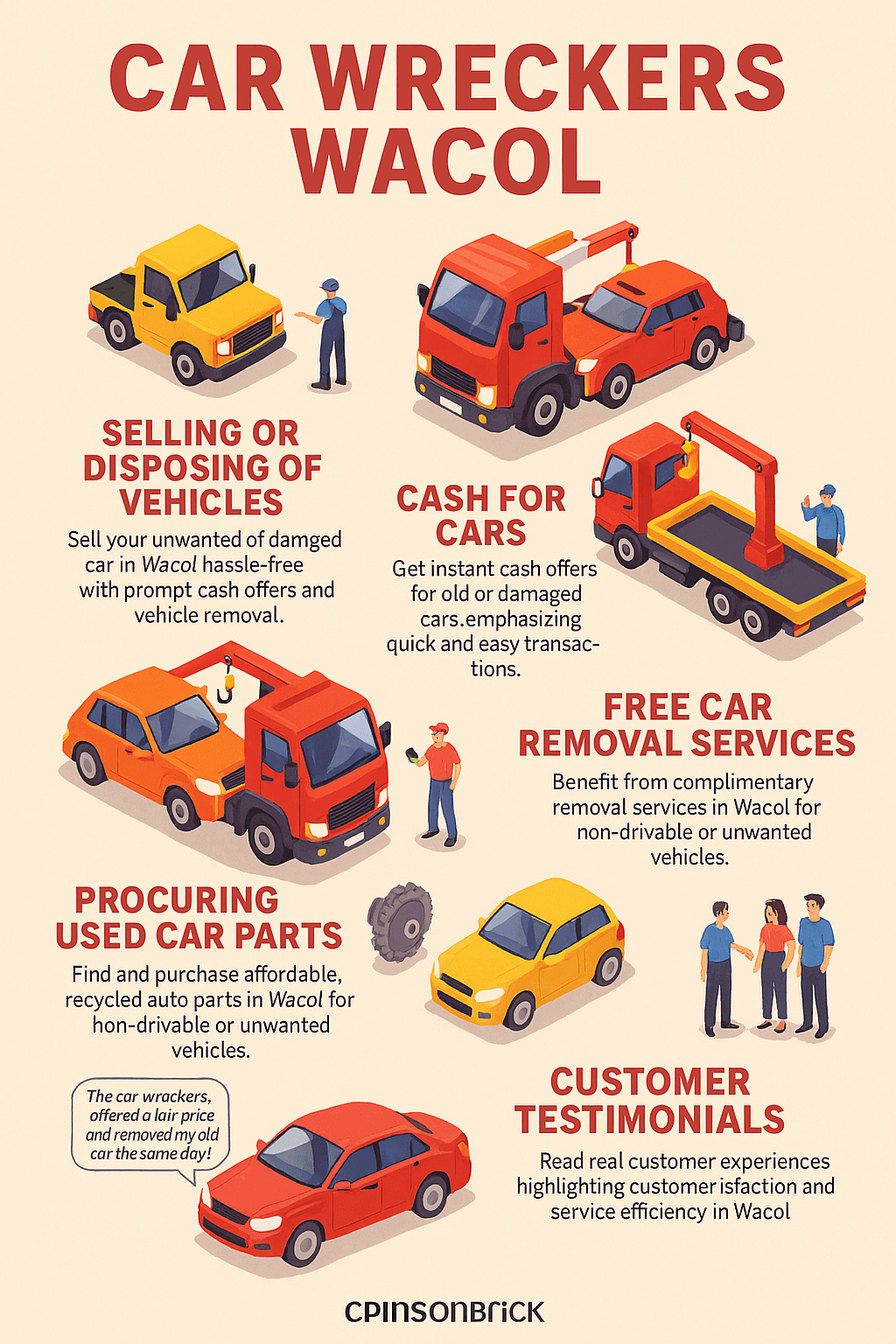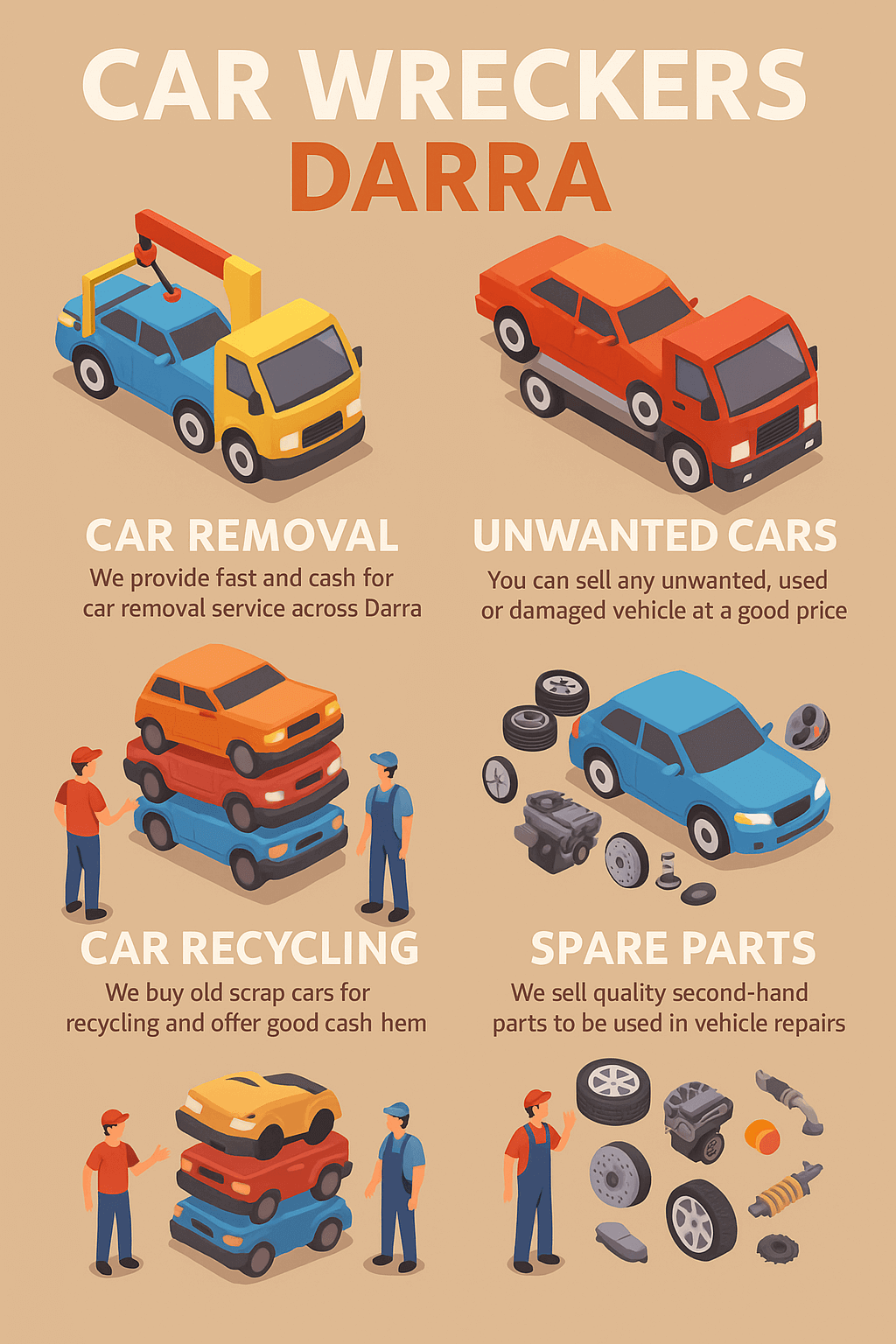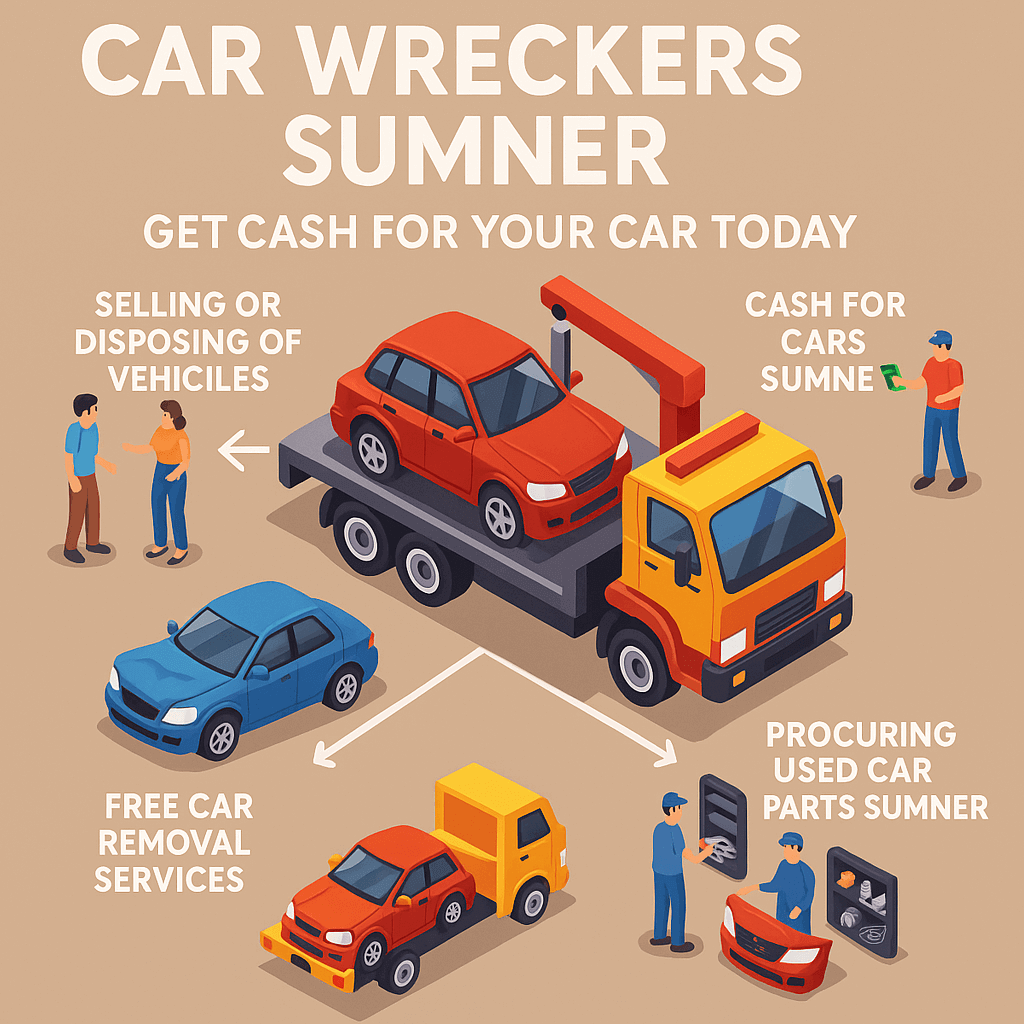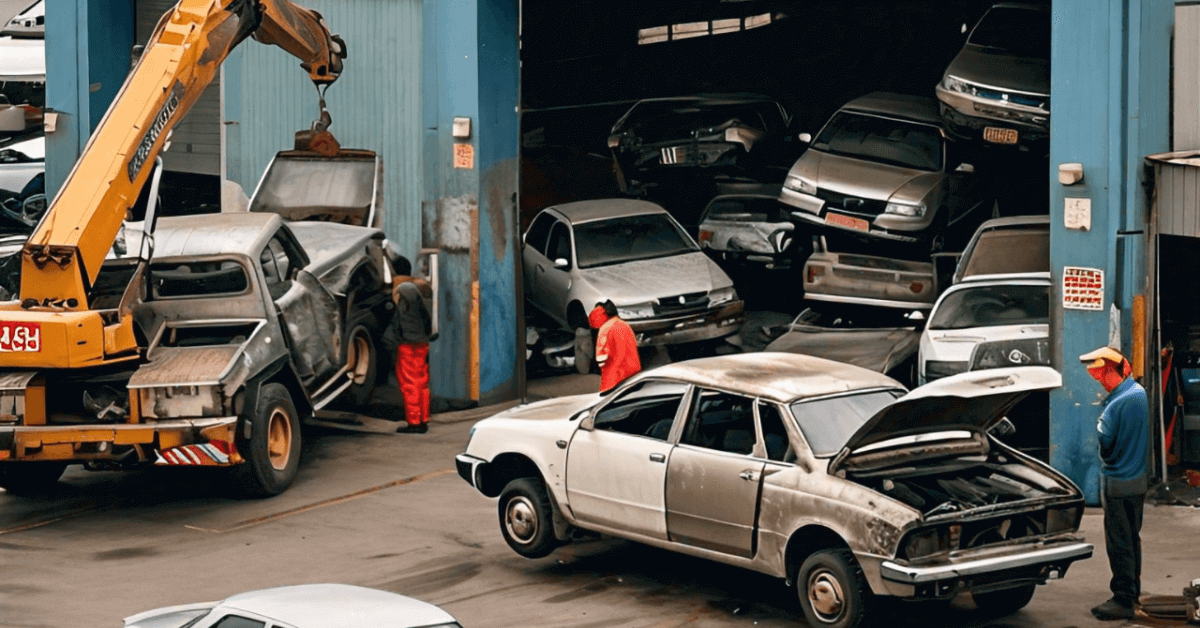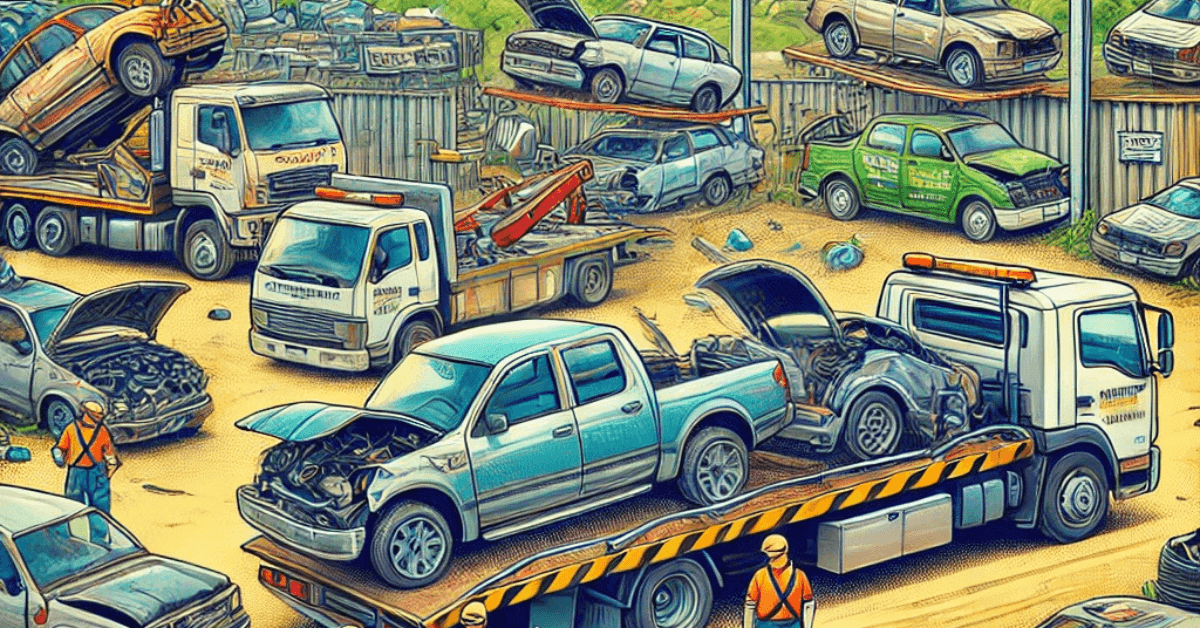Comprehensive Guide to Finding Second Hand Car Parts Near Me
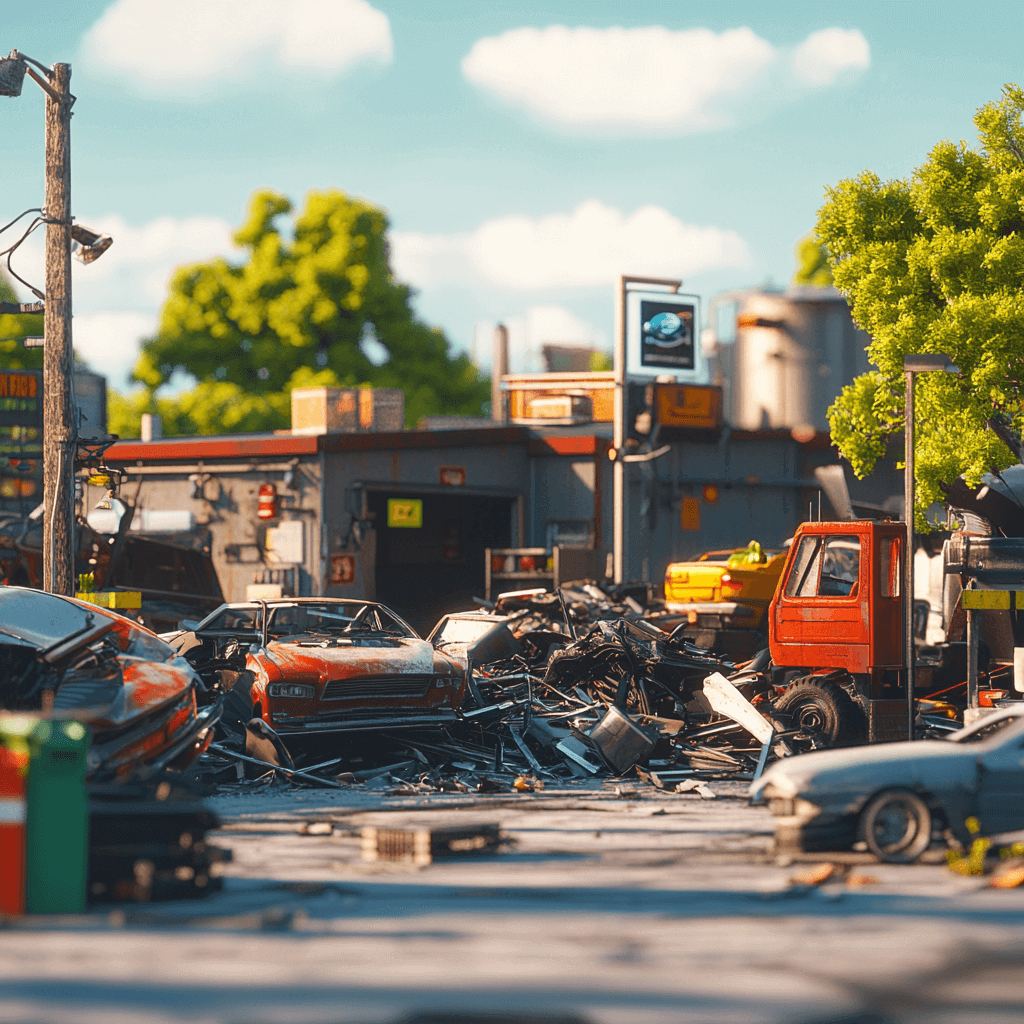
Key Takeaways
- Local Sources: Learn where to find local salvage yards, auto recyclers, and wreckers near you.
- Cost Savings: Understand how buying second-hand parts saves money and offers practical benefits.
- Reliability: Discover key checks and vendor reputations to ensure quality and trustworthiness.
- Quality Selection: Get expert tips on choosing the best used car parts based on wear, brand, and warranty.
- Online Buying: Weigh the pros and cons of purchasing parts online for convenience.
- Top Marketplaces: Find a list of recommended local and online marketplaces for second-hand auto parts.
- Preparation Tips: Know what information to gather before making your purchase.
- Process Guidance: Follow clear steps for getting parts from wreckers safely and confidently.
Searching for Local Sources and Availability
Finding second-hand car parts near you can be easier than you think. Local auto recyclers and wrecker yards are excellent sources for used parts that work well. Start by checking local directories and community boards. Many websites and forums recommend reputable sources, and you can also visit physical locations to see the quality of parts firsthand.
Using keywords like wreckers near me open now or auto wreckers near me in search engines can help narrow your search. For additional guidance, check websites like Cars Wreckers which provide detailed listings and contact details for local wreckers. Always call ahead to verify availability and quality. Local experience and community recommendations can also lead to hidden gems not found online. Spending a little time on research will ensure that you get parts that are both affordable and reliable.
Cost Savings and Practicality
- Affordable Prices: Second-hand car parts are typically much less expensive than new ones.

- Eco-Friendly Option: Buying used parts helps reduce waste by recycling valuable components.
- Quick Availability: Local wreckers near you often stock a range of parts, making them immediately accessible.
- Practical Benefits: Many used parts come from vehicles that have been thoroughly inspected, meaning you can often find quality components that work well.
- Lower Repair Costs: Instead of replacing entire systems, buying a specific used part can save significant money.
- Community Trust: Rely on reviews and recommendations from other buyers to choose reputable providers.
- Easy Research: Use online directories and local listings to compare prices and options before making a decision.
- Local Support: Supporting local businesses helps the community while also getting you quality parts quickly.
Reliability of Used Car Parts
- Vendor Reputation: Look for sellers with positive reviews and strong community feedback.

- Quality Checks: Ensure that the parts have been inspected for wear and damage before sale.
- Certifications: Some auto recyclers offer guarantees or short-term warranties on parts.
- Usage History: Ask about the part’s previous usage; parts from high-mileage vehicles may be less reliable.
- Expert Opinion: Consult local mechanics or knowledgeable friends who can assess the condition of used components.
- Visual Inspection: Look for signs of rust, cracks, or wear. A quick test can sometimes reveal a part’s true condition.
- Return Policies: Choose suppliers that offer a return policy if the part doesn’t work as expected.
- Documentation: Request any available documentation or service history that verifies the part’s reliability.
- Community Forums: Check discussion boards for experiences others have had with specific suppliers or parts.
Choosing Quality Used Car Parts
- Inspection Tips: When choosing used parts, inspect for visible damage, rust, or signs of excessive wear.

- Brand Considerations: Opt for parts from well-known brands as they are more likely to maintain performance.
- Warranty Options: Look for providers who offer limited warranties on used parts.
- Expert Advice: Seek recommendations from trusted mechanics or auto enthusiasts.
- Comparison Shopping: Compare prices and quality across several local providers.
- Maintenance History: Ask if the parts have a documented service history.
- Fit and Compatibility: Make sure the part is compatible with your vehicle model.
- Detailed Examination: Use a flashlight to check hard-to-see areas and verify integrity.
- Vendor Transparency: Reliable sellers will provide honest details about the part’s condition and history.
- Customer Feedback: Read online reviews and ask previous buyers about their experiences.
Buying Used Car Parts Online
Purchasing used car parts online has its advantages and drawbacks. Online marketplaces allow you to compare prices from various sellers quickly, and many reputable websites provide detailed descriptions and photographs of each part.
However, the convenience of online buying means you must be extra cautious. Look for sellers with verified customer reviews and clear return policies. Use platforms that specialize in auto parts, and cross-reference the seller’s contact information with local directories. It’s a good idea to call the seller if you have questions about the part’s condition or compatibility with your vehicle. Secure payment options and buyer protection policies are essential to ensure that you are not at risk of fraud. For more information, check out Affordable Used Auto Parts in Brisbane. Overall, while online shopping offers a broad range of choices, thorough research and verification can help you avoid potential pitfalls.
Best Places to Buy Second-Hand Auto Parts
Below is a list of top sources recommended for buying second-hand auto parts:
- Local Auto Wreckers: Visit your local auto recyclers and salvage yards for immediate access.

- Online Marketplaces: Websites like Cars Wreckers offer detailed listings and contact information.
- Community Directories: Use local business directories and forums to find highly rated sellers.
- Auto Recyclers: Many auto recyclers have an online presence, showing available parts and prices.
- Specialized Platforms: Some websites focus exclusively on used car parts, ensuring you get quality options.
- Word of Mouth: Ask your mechanic or friends for recommendations on reliable local suppliers.
- Review Sites: Read customer reviews on various sites to confirm the seller’s reputation.
- Social Media Groups: Join local groups focused on car repair and maintenance for updated advice and leads. Each of these sources can provide access to quality parts at a lower price, ensuring you find what you need without overspending.
Knowledge Before Buying Used Car Parts
- Do Your Research: Learn about the specific part you need and its compatibility with your vehicle.

- Inspect Thoroughly: Always inspect parts for damage before purchasing.
- Ask for History: Inquire about the part’s previous use and maintenance.
- Check Reviews: Use online reviews to assess seller reliability.
- Know Return Policies: Understand the seller’s return and exchange policies.
- Compare Prices: Evaluate offers from multiple sources.
- Warranty Considerations: Look for any available warranty or guarantee, even on used parts.
- Consult an Expert: If in doubt, ask a trusted mechanic for advice. This checklist helps ensure you are prepared and informed before buying second-hand parts.
Finding a Salvage Yard Near Me
Locating a salvage yard near you can be straightforward with the right tools. Start by using online directories and mapping services to find nearby yards.
Search with phrases like wreckers near me open now or wreckers parts finder. Many salvage yards also maintain a website where they list available parts and services. Calling ahead can save time and confirm that the parts you need are in stock. Using local social media groups and forums is another great way to find recommendations. Often, community members share their positive experiences with local salvage yards. Additionally, visiting a yard in person can give you a better idea of the overall quality and range of parts available. This local approach not only ensures you get what you need quickly but also supports nearby businesses.
The Process of Getting Car Parts from Wreckers
When visiting wreckers to source car parts, preparation is key. Begin by researching local wreckers using online tools and directories.
Before your visit, make a list of the parts you need and call ahead to check availability. When you arrive, speak with the staff to inspect the parts; they can guide you on the condition, compatibility, and installation process. It is important to ask about any return policies or guarantees, as this can help secure your purchase. Bringing a trusted mechanic or a knowledgeable friend along can also be helpful, especially if you are unfamiliar with the condition of used parts. Take your time to compare different options and negotiate the price if necessary. Document any details such as part numbers or visible signs of wear so you have a reference for future use. This thorough process ensures that you get reliable, quality parts while saving money, making the entire experience smooth and efficient.
Frequently Asked Questions
Q1: Where can I find second-hand car parts?
A: You can find them at local auto wreckers, salvage yards, and online platforms like Cars Wreckers.
Q2: Are used car parts reliable?
A: Yes, if you check vendor reputations, inspect parts for damage, and verify any warranties or return policies.
Q3: How do I choose quality used car parts?
A: Look for parts with minimal wear, reputable brands, and clear service history. Ask experts for recommendations if needed.
Q4: Can I buy used car parts online?
A: Yes, many reputable online marketplaces offer used car parts. Just ensure the seller is verified and has clear return policies.
Q5: What should I know before buying used car parts?
A: Research compatibility, inspect the part carefully, check customer reviews, and understand the return policy.
Q6: How do I find a salvage yard near me?
A: Use online directories, mapping services, and local recommendations to locate nearby salvage yards efficiently.
Q7: What is the process of getting car parts from wreckers?
A: Research local wreckers, call ahead, inspect the parts in person, and confirm details like warranties and compatibility before purchasing.
Conclusion
In summary, finding second-hand car parts near you involves careful research, clear communication, and smart shopping practices.
Local sources like auto wreckers, salvage yards, and reputable online marketplaces offer plenty of options. By following a checklist—inspecting parts carefully, checking vendor reputation, and verifying compatibility—you can save money while ensuring the parts you choose are reliable and safe. Expert advice and community recommendations further enhance your purchasing decisions. Remember to use internal resources such as Cars Wreckers for detailed listings and more insights. With these strategies, you can navigate the used car parts market with confidence and secure quality parts that extend the life of your vehicle.

